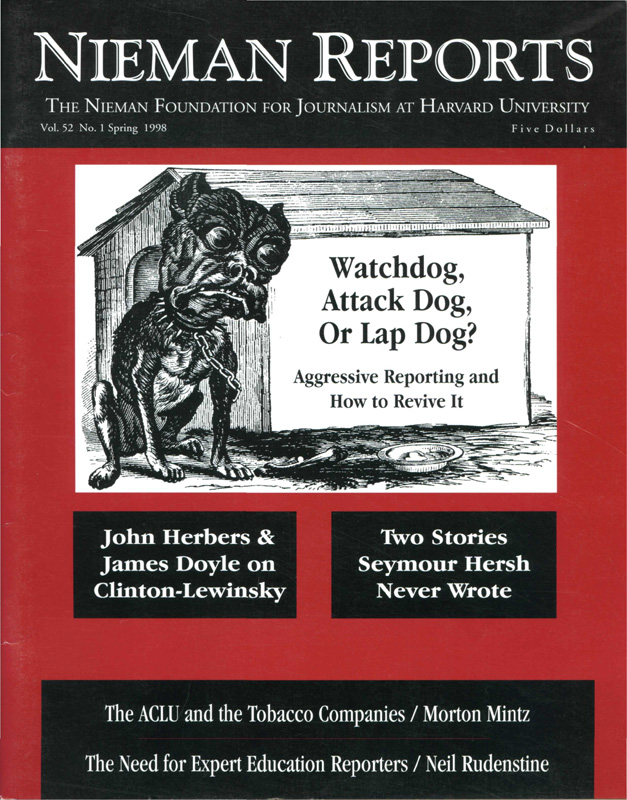We found [in a content analysis of 10 local TV markets] that almost 30 percent of the time spent on local TV news was devoted to crime and court stories. Ten percent was devoted to reporting calamities and natural disasters. Government and politics accounted for little more than 15 percent. Two critical areas were almost nonexistent. Education stories totaled a mere 2 percent. Race relations totaled 1.2 percent.
Consultants tell us we should report stories the viewers care about…. How can they care if they don’t know about it? They don’t care because we give them no reason to care. This is our job as journalists.
Every station is under tremendous pressure to keep costs as low as possible. Breaking news that is crime- and crisis-driven is cheap to cover and easy to cover. Murders, fires and traffic accidents require little background research.
As a profession, we cannot afford to throw up our hands saying there is nothing we can do. We cannot afford to blame the consultants, the accountants and business owners. Journalists must take responsibility and take back the decision-making process.
 Patricia Dean, Chair of the Broadcasting Department of Medill Journalism School, Northwestern University.
Patricia Dean, Chair of the Broadcasting Department of Medill Journalism School, Northwestern University.
1 will assure you that in almost every case—and we serve 140 local television stations across the country—the general manager and the owner of those stations do not, in any way, shape or form, dictate what the news policy should be. We as consultants come into a news department and are asked to tell people what is new, what they can do that is different…. And when we suggest to them areas beyond what happens to be the standard approach, the first response that we get is, “Who else is doing that?” And when we say, “You asked us what’s new, what’s different.” Then they say, “Well, maybe we’d better wait until somebody else does it to see whether it works or not.” Whose fault is that? What chances are being taken by the professional journalists?
This may go against the grain of some here, but while they may be trained to write and while they may be trained to articulate what is written, the fact remains that many who call themselves journalists and are employed in local stations have no notion whatsoever about history, geography, political science, economics and other things about which an informed individual should have some grasp. Unless and until the people in the profession come to grips with that there will never be a change.”
 Frank Magid, Chair and CEO, Frank N. Magid Associates.
Frank Magid, Chair and CEO, Frank N. Magid Associates.


